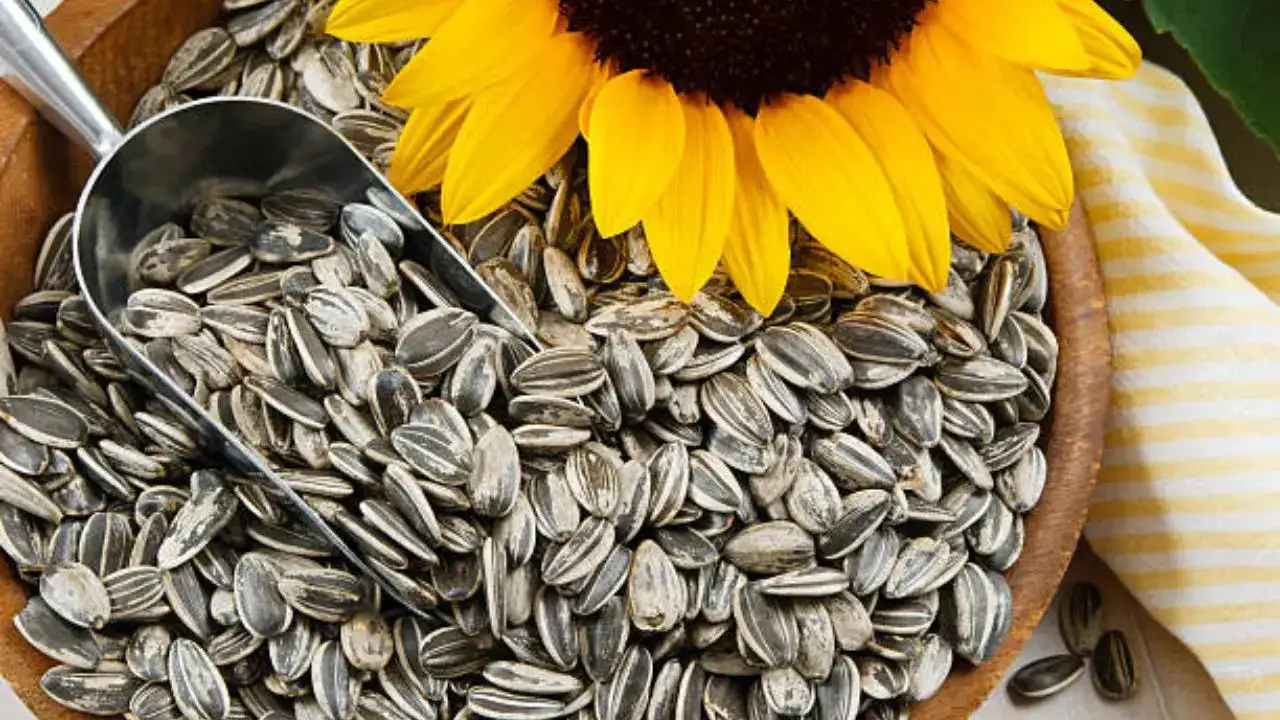
Known for protein, carbs, fibre, and vitamin E, these seeds are usually eaten for snacks as they are loaded with antioxidants
Sunflower seeds are a powerhouse of healthy fats, beneficial plant compounds, and several vitamins and minerals that play an important role in reducing your risk of common health issues, including heart disease and type 2 diabetes. Known for protein, carbs, fibre, and vitamin E, these seeds are usually eaten for snacks as they are loaded with antioxidants that protect your body’s cells against damage from free radicals and prevent many deadly diseases.
Experts say if you eat a handful daily, you may have several benefits, which include:
Reducing inflammation
Even though short-term inflammation is a natural immune response, doctors say chronic inflammation is a major risk factor for many diseases—like heart disease and type 2 diabetes. Flavonoids in sunflower seeds also help reduce inflammation.
Studies say if you eat sunflower seeds daily or five times a week, you have a chance of reducing inflammation by 32 per cent.
Improves heart health
Sunflower seeds are high in heart-healthy fats, like polyunsaturated and monounsaturated fats. Plant sterols, natural compounds found in sunflower seeds, are touted for their cholesterol-lowering properties.
Doctors say bioactive peptides in sunflower seeds make your blood vessels relax, lowering blood pressure - by blocking an enzyme that causes blood vessels to constrict.
Lowers blood sugar levels
The effects of sunflower seeds on blood sugar and type 2 diabetes have been tested in many studies and seem promising. Doctors say those who eat around 30 grams of sunflower seeds daily as part of a healthy diet reduce fasting blood sugar by about 10 per cent within six months, compared to a healthy diet alone.
The blood-sugar-lowering effect of sunflower seeds may partially be due to the plant compound chlorogenic acid.
What are the potential downsides of sunflower seeds?
Even though sunflower seeds are extremely healthy, they do have certain side effects, a few of which are:
High in calories
Even though they are loaded with nutrients, sunflower seeds are also extremely high in calories. Eating the seeds in the shell is a simple way to slow your eating pace and calorie intake while snacking.
Can damage kidneys
Sunflower seeds are loaded with cadmium, a heavy metal that can harm your kidneys if ingested too much over long periods of time. Sunflower plants take cadmium from the soil and deposit it in their seeds, so they contain somewhat higher amounts than most other foods.
Sprouted seeds can cause bacterial infection
If the sunflower seeds become sprouted, they can be contaminated with harmful bacteria like salmonella, which thrives in the warm, moist conditions of sprouting. Drying sunflower seeds at higher temperatures helps destroy harmful bacteria.
Can cause constipation
Eating too many sunflower seeds at once can result in fecal impaction – or constipation—in both children and adults. Eating these seeds in the shell increases your odds of stool blockages as your body cannot digest them.
